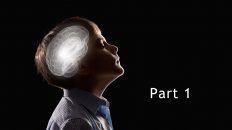By Jerry Morris, PsyD, MsPharm, MBA
MB (Marc Braman, MD, MPH):
Our topic this session is Attention Deficit Disorder Lifestyle Treatment Overview. Thank you again for joining us Dr. Morris.
JM (Jerry Morris, PsyD, MsPharm, MBA):
Glad to be here, Marc.
MB:
So, in our previous session we were doing a treatment overview as a whole for Attention Deficit Disorder. In this session, we’re drilling into the lifestyle part to the next level, and getting those pieces on the lifestyle map. So, first of all, is lifestyle and different lifestyle factors the… Are they the primary causes of Attention Deficit Disorder?
JM:
Most assuredly. There are a couple physicians on the West Coast, Vince Felitti, who is a really fine physician, with Kaiser Permanente and Dr. Anda did these famous ACE studies, A-C-E, and they have, what SAMHSA is now circulating internationally called the ACE Pyramid, and it shows how adverse childhood experience, all of this research, causes disrupted neural development, causes disruptive adaptation to social and emotional and cognitive environments and in learning, shows how eventually it causes adoption of poor coping skills which further escalates things into disease and disability, and social problems, and even shortened life span. So, we know now from the research how many of these disorders start and develop. They’re in lifestyle, they’re in relational cores of lifestyle. They’re in the stressors that certain lifestyles expose us to, and relational types expose us to.
MB:
So, if these lifestyle, and relationship, and family dynamics and issues are the primary causes, can we use different facets of lifestyle to effectively and best treat Attention Deficit Disorder according to the evidence?
JM:
Most assuredly, in fact, I don’t know any other way to treat it than that more holistic approach. These adverse childhood experiences have disrupted neural development and disrupted learning style. You can influence that through several windows. That is influenced by nutrition. That’s influenced by exercise. That’s influenced by psychology of cognition, and inhibition, and flexibility growth in coping skills. That’s influenced by putting a person into positive institutions with positive people, and positive activities that give these reprogramming lifestyle exercises in the thousands.
JM:
And so, any competent treatment, understanding the development of these mood disorders and the Attention Deficit Disorders would include lifestyle interventions. And in fact, the doctor, whether it’s a physician or a psychologist that treats these patients, increasingly we are aware that they become case managers or people who are not only treaters, but they’re beginning to pull together the lifestyle and bring what are called “Behavioral activation assignments” to the patient, their family and their lifestyle to enhance the recovery from these early programming events.
MB:
Excellent, so there’s huge factors in terms of relationships, and the environment the child is growing up in, adverse events, et cetera. Let’s just touch briefly on other key aspects of lifestyle. Does sleep have any causative role and/or treatment role with ADD?
Relationship of Childhood Abuse and Household Dysfunction to Many of the Leading Causes of Death in Adults: The Adverse Childhood Experiences (ACE) Study. Felitti VJ, Anda RF, Nordenberg D, Williamson D, Spitz A, Edwards V, Koss MP, Marks JS (1998). American journal of Preventive Medicine. Vol. 14, Issue 4, p. 245-258.
Exercising Your Brain: A Review of Human Brain Plasticity and Training-Induced Learning. Green, C. S., & Bravelier, D. (2008). Psychology and Aging. Vol. 23, No. 4, 692-701.
Dynamic Remodeling of Dendritic Arbors in GABAergic Interneurons of Adult Visual Cortex. Wei-Chung Allen Lee, Hayden Huang, Guoping Feng, Joshua R. Sanes, Emery N. Brown, Peter T. So, Elly Nedivi (2006). PLos Biol. Volume 4, Issue 2, e29. doi: 10.1371/journal,pbio.0040029.





